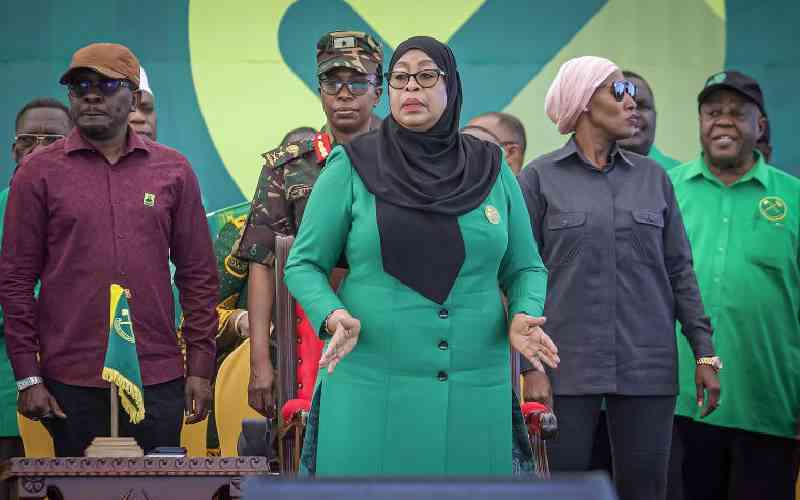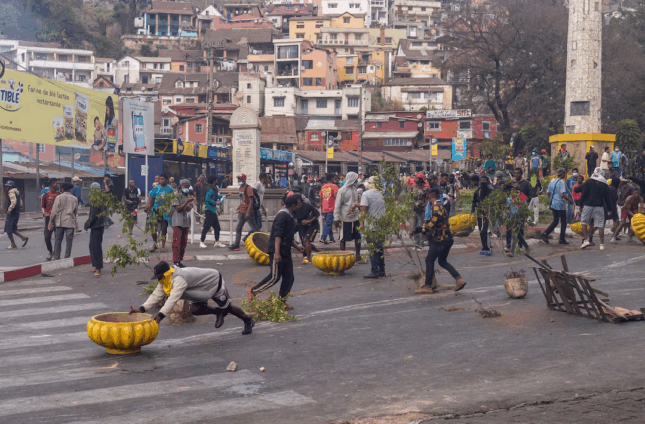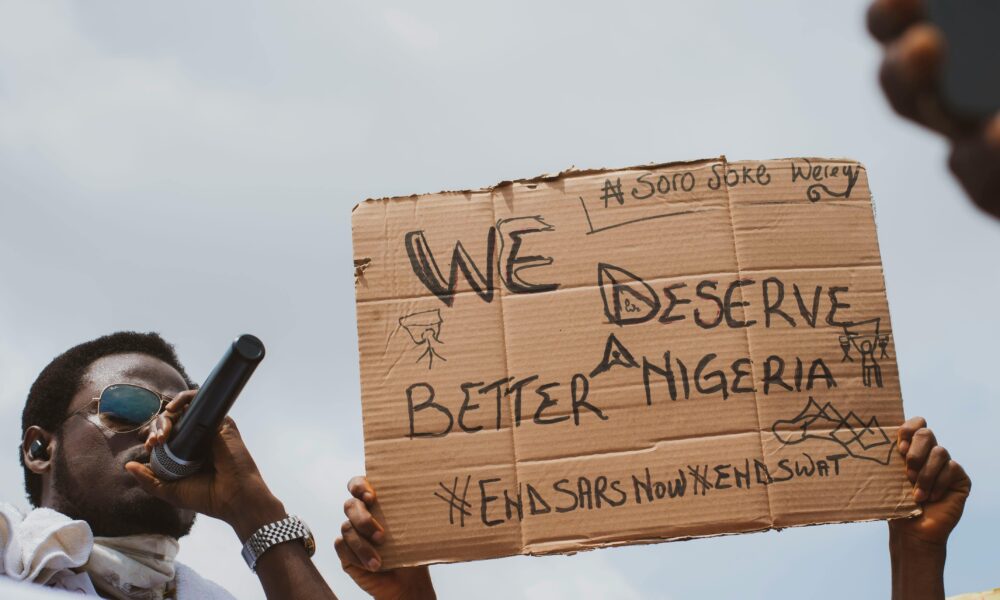Tanzania Erupts: Post-Election Protests, Military Deployment, and Communication Blackout Plunge Dar Es Salaam into Chaos

Tanzania witnessed widespread unrest, human rights abuses, and a significant crackdown on opposition during a virtually uncontested election, as President Samia Suluhu Hassan sought to solidify her position. The polls were marred by the jailing or disqualification of main challengers, including Tundu Lissu of the CHADEMA party, who faces treason charges and a potential death penalty, and Luhaga Mpina of ACT-Wazalendo, who was disqualified on technicalities. This created an environment where many perceived the election as a "one-horse race," leading to low voter turnout and widespread voter apathy, particularly among younger demographics.
In the lead-up to the elections, rights groups vehemently condemned a "wave of terror" across the East African nation. Amnesty International documented "enforced disappearance and torture" and "extrajudicial killings of opposition figures and activists." Much of the public anger was directed at President Hassan’s son, Abdul, who was reportedly in charge of an "informal task force" of police and intelligence services. This task force is implicated in a massive increase in abductions of government critics, including popular social media influencer Niffer, accused of promoting protests through satirical videos.
Despite a heavy security presence, hundreds of protesters took to the streets in major cities, including the economic hub Dar es Salaam, and other regions like Songwe, Arusha, Mbeya, and Zanzibar. Demonstrations intensified on Wednesday and continued into Thursday, with reports of police responding with live fire and teargas. Protesters targeted polling stations, police vehicles, and businesses linked to the ruling Chama Cha Mapinduzi (CCM) party, which has governed Tanzania since independence in 1961. Incidents included the burning of a police station along Nelson Mandela Road in Dar es Salaam, and a bus and gas station in the Kimara and Ubungo neighborhoods.
Security measures escalated significantly. Police imposed an overnight curfew in Dar es Salaam, a city of over seven million people, and military forces were deployed in Dodoma and Zanzibar. Checkpoints were established around Dar es Salaam and other cities, and schools and colleges were closed, with civil servants advised to work from home. Compounding the situation, a nationwide internet blackout was confirmed by NetBlocks, a monitoring group, severely limiting communication and information flow. The heavily controlled local media remained silent on the unrest and provided no updates on the election, leaving citizens in the dark.
Reports of casualties varied and remained largely unverified. A diplomatic source indicated that upwards of 30 people might have been killed in Wednesday's violence, though this could not be independently confirmed. Amnesty International initially reported two deaths from social media images and videos, later specifying one member of the public and one police officer killed during election day protests. A member of the opposition party Chadema indicated reports of at least four deaths, stressing the uncertainty of these figures. The violence was labelled "deeply disturbing" by Amnesty International, warning of a high "risk of further escalation."
President Hassan, who came to power in 2021 after the sudden death of her predecessor John Magufuli, initially garnered praise from rights groups for easing restrictions on the opposition and media. However, these hopes faded as her administration oversaw a reversal, leading to the current crackdown. She faced internal opposition from parts of the army and allies of the late Magufuli. Concerns about the election's transparency were exacerbated by the absence of international observers, which analysts from the Institute for Security Studies noted could undermine public confidence in the results. The US Embassy in Tanzania issued a security alert citing "country-wide protests."
In Zanzibar, the opposition ACT Wazalendo party alleged irregularities during early voting by electoral and security officials, including impersonation and the barring of party representatives, although the electoral commission maintained compliance with the law. With over 37 million registered voters eligible to cast ballots, the widespread belief that Hassan would win easily contributed to the observed voter apathy. The electoral commission announced it would release preliminary results within three days, with final outcomes potentially taking up to seven days.
Recommended Articles
Iron Grip on Tanzanian Polls: President Suluhu's Solo Race

Tanzania faces a general election today amidst an uneasy calm, with serious questions raised about the country's democra...
Sky-High Expansion: Air Tanzania Launches New West African Routes

Air Tanzania has secured a Validated Foreign Air Operator Certificate from Ghana, paving the way for direct flights betw...
Africa Soars: Dar es Salaam-Lagos Direct Flights Ignite East-West Connectivity Revolution

Air Tanzania has launched direct flights between Dar es Salaam and Lagos, promising to transform African travel and trad...
Madagascar Erupts: Protesters Defy Government, Face Tear Gas in Escalating Unrest

Hundreds of young protesters in Madagascar continue their demonstrations despite President Andry Rajoelina's decision to...
Jessica Ireju's Inspiring Message: Finding Hope After #EndSARS

Five years after the #EndSARS protest and the tragic events at Lekki Toll Gate, the author reflects on personal and coll...
You may also like...
Crystal Palace's Brutal Schedule: Cup Run Causes Fixture Crisis

Crystal Palace faces a demanding schedule with four matches in eight days, including a Carabao Cup quarter-final against...
Man United's Bold Move: Amorim Talks Intensify

Manchester United is fully committed to backing head coach Ruben Amorim in the transfer market, with director of footbal...
Scream 7 Trailer Unleashes Sidney Prescott's Triumphant Return Against Ghostface

"Scream 7" is set to reignite the iconic horror franchise with its first trailer, bringing back Neve Campbell as Sidney ...
The Witcher Season 4 Reviews Crown Liam Hemsworth's Geralt a Thrilling Upgrade

Netflix's "The Witcher" returns for its fourth season, introducing Liam Hemsworth as Geralt of Rivia in a sharper, more ...
Fashion Icon Bob Mackie 'Shocked' By Taylor Swift's Iconic 'Showgirl' Cover Look!

Iconic Hollywood fashion designer Bob Mackie was thrilled and surprised to see Taylor Swift grace the cover of her new a...
Country Queen Carrie Underwood Makes History As Highest RIAA-Certified Female Artist!

Carrie Underwood has been crowned the highest RIAA-certified female country artist ever, with over 95 million units in t...
Royal Lodge Showdown: King Charles' 'Godfather' Ultimatum to Prince Andrew Sparks Kate Middleton Fears

Prince Andrew faces intense pressure to vacate Royal Lodge amid his Jeffrey Epstein scandal. King Charles seeks a soluti...
Liberia's Diplomatic Triumph: U.S. Expands Visa Privileges to 36 Months

The U.S. Department of State has extended the validity of nonimmigrant visas for Liberian citizens from 12 to 36 months,...